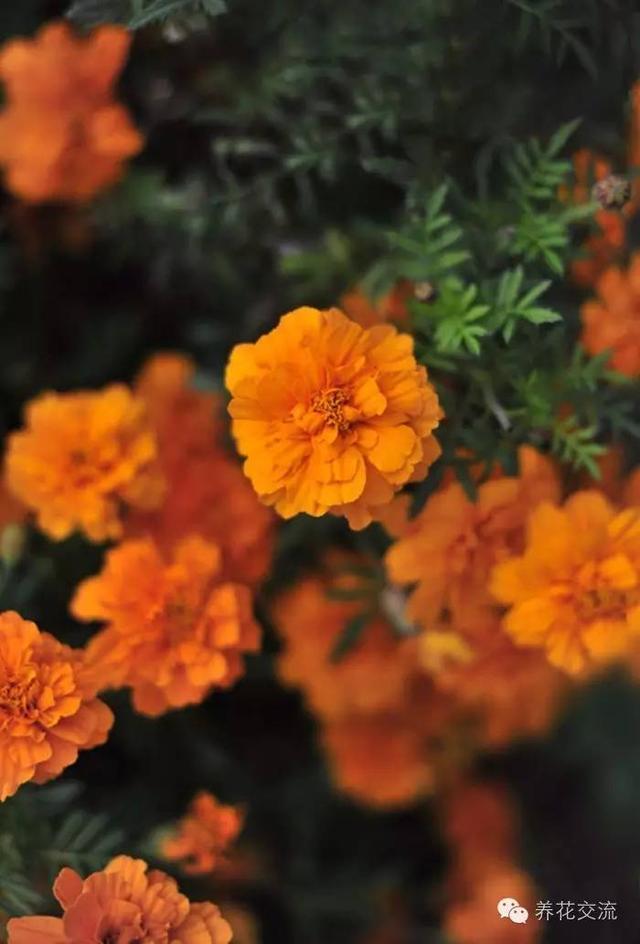The fruits and vegetables planted by flower friends only blossom but do not bear fruit. Why?
One question that is often asked is why my fruit trees or tomatoes, beans, etc. have a lot of flowers but no fruit.
For example, cucumbers, only female flowers will have melons, male flowers can not bear fruit, need small animals or flower friends to pollinate it.

If you give flower friends analysis, the first reason that comes to mind is definitely the lack of bee pollination, because most plants have female flowers and male flowers, and without bee or other insect pollination, they will not bear fruit.
Small animals pollinate.
1. Bee pollination:
Therefore, people who grow fruit trees or fruits and vegetables need bees. Without bees, humans may soon run out of food.
I've told you many times, if you don't see a lot of bees in your yard, pollinate yourself.
2. How to artificially pollinate
Pollinating is easy. Using a small clean brush (such as an unused watercolor pen), swipe it over each flower, thus transferring pollen from one flower to another. It was as simple as a butterfly stopping at each flower.
Without insect pollination, flowers will not bear fruit, and flowers will fall. This is the magic of nature.
3. Attract insects
Therefore, every plant should attract birds and insects as much as possible (some birds wait for the fruit to mature to eat), and the flowers should be brightly colored or attracted with honey and fragrance. Of course, I have heard that some flowers attract flies, so they will give off a rotten smell.
4. Self-pollination
There are exceptions to this rule. Some fruit trees pollinate themselves. These include apricots, peaches, peaches, sour cherries, and some plums. The flowers of these plants are monoecious and the pollen mixes easily by itself. Some, such as pine trees, are pollinated by natural wind.
Passionflower
Most other fruit trees and melon-bearing vegetables need pollination, especially apples, pears, most plum varieties, cherries, strawberries, etc. (So when buying plum trees, first find out if you need insect-pollinated varieties)
(Strawberry)
But even plants that pollinate naturally need a little help from bees and insects. Tomatoes, for example, also have female and male flowers growing together, but if there is no wind, the plant remains still all day, and the two pollen species do not mix. So if you shake the tree, it helps.
Therefore, those who like to plant fruit trees, it is best to plant some flowers that attract bees and butterflies, so that there are often bees, butterflies, birds, insects, etc. in the yard.
Other possible causes of failure:
1. Natural regulation:
If only part of the fruit tree's flowers dropped, it could be natural regulation of the tree. Because each tree has limited nutrients, when the number of flowers is too large, some flowers will naturally drop, so as not to be overloaded. This is also a miracle of nature.
(watermelon)
Many plants have this phenomenon, most of which occur in late June to early July,(depending on the climate and cold of each place), that is, just flowering and not yet beginning to bear fruit. This can also happen with beans, tomatoes, etc.
In some cases, the plant will adjust after fruiting, for example, fruit trees will automatically drop some smaller fruits to avoid excessive fruit load. Apple trees are the most obvious, often see apple trees fall a lot of small apples, is this reason.
2. Proper fruit thinning
In fact, if the fruit tree does not regulate itself, we have to help it regulate. At the beginning of fruiting, occasionally remove some smaller fruits, this is called fruit thinning (only fruit growers know these things, flower friends rarely inform).
Otherwise, it will bear many fruits in the future, but they will be too small. Many fruit trees such as cherries, peaches and apples need to do this.
(Raspberry)
Without fruit. The consequence is that there may be too many smaller apples, or too many fruits crushing a side branch, or too many fruits in one year, and no fruit in the next or even the third year.
(Be careful with fruit thinning and pay attention to safety.) You can also have a variety of trees, which have good yields every other year.)
III. Temperature impact:
High temperatures during the post-flowering period can also be a factor. This occurs more easily in vegetables, such as beans, tomatoes, peppers, etc. When the temperature rises to nearly 30 degrees or above for a long time, there will be flower drop, or bud drop phenomenon, or only flowers without fruit phenomenon.
(Blueberry)
The reason is that the plant suffered pressure, can not stand, in order to protect themselves, abandon the car to protect handsome. It's all natural regulation. This is worse when it is too wet.
In addition, when the temperature is too high at night, it will affect the gestation of fruits. Because after pollen transfer, it takes the right temperature (low temperature) for the two pollen species to combine and bear fruit.
To know these things, one would understand the difficulties encountered by the farmer every day.
4. Excessive fertilizer:
Maintaining proper nutrients reduces stress on plants and naturally helps them to blossom and bear fruit. However, if too much fertilizer is applied, or the wrong fertilizer is applied, it will also affect flowering and fruiting.
Mulberry
One of the most obvious mistakes is applying too much nitrogen, because nitrogen is normally used to promote shoot growth, and when the plant gets the signal to promote shoot growth, it naturally reduces the power to flower. So either no fertilizer, or more phosphorus and potassium fertilizer, preferably nitrogen, phosphorus and potassium fertilizer evenly.
(Raspberry)
On the other hand, fertilizer should not be excessive, too much fertilizer, plants will be lazy. You know, the main purpose of plant survival is reproduction, when the plant has a sense of crisis, it will reproduce in large numbers, in order to continue life. When plants are too comfortable, they lack a sense of crisis and sometimes lose their motivation to reproduce.
In many cases, if enough organic soil is added, such as compost soil and manure Manure, it is even unnecessary to apply fertilizer again.
Too much water or lack of water:
Plants are most afraid of soil always wet, that is, the soil surface is still wet, and watering. There are many disadvantages, the most serious of which is that it leads to rotten roots and premature plant death.
Second, the soil is always wet, and plants cannot absorb the proper nutrients from the soil, and even if they bloom, they cannot bear fruit.
Vegetables and fruit trees are afraid of water shortage, plants will feel serious stress. Just like the excessive heat mentioned above, in order to keep the plant from dying, only to give up the fruit.
Therefore, to maintain the appropriate degree of soil, do not over-water, do not over-water. One way to do this is to cover the surface with soil to keep the moisture from disappearing.
Not enough sunlight:
Fruit trees and vegetables need at least six hours of sunshine a day, and more in colder and rainy areas. (Flowering plants such as roses are also the same). Without sunlight, flowering conditions will not be ideal, and fruit after flowering will also be affected.
VII. Diseases and pests:
This reason is obvious, if there is mold, or a virus common to fruit trees, it will naturally stop flowering or fruiting. And when there are insects, it will also affect flowering or fruiting.
Make gardening more fun and easier! Follow Weixin Official Accounts: Flower Cultivation Exchange [yanghuajiaoliu]
This article is original for the headline author. Reproduction is not permitted without authorization.
Related
- A course of planting techniques and methods on how to grow carrots
- How to plant the latest tulips?
- Is it better to pick tea in the morning or in the afternoon? When is the best time for tea to be picked? what is the third or fifth tea?
- Launch Yuanxiao Happy combination Haocha + Tea Yuan healthy Taste
- Penghu Tourism "Fireworks 20 Parade with You"
- 2022 West Lake Happiness holds "Digital Revitalization Voucher" and draws iphone13 and laptop.
- Banqiao Fuzhou social houses are designed to change start-up combined with police elimination to create a safe and livable environment
- The convenient measure of "mechanical weeding" in Xinbei has been abused and the Agriculture Bureau has imposed heavy penalties on the illegal land consolidation.
- Changgeng University Joins Hands with Four Memory Factories to Rescue Memory Talent Shortage
- The list of Taiwan's top 100 MVP managers is listed by the Director-General of the Farmers' Association of Sanxia District.



